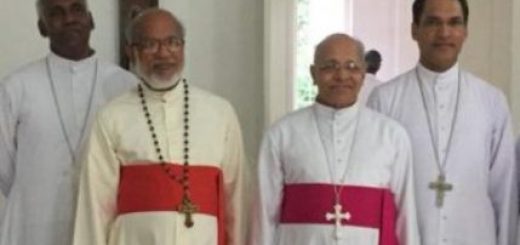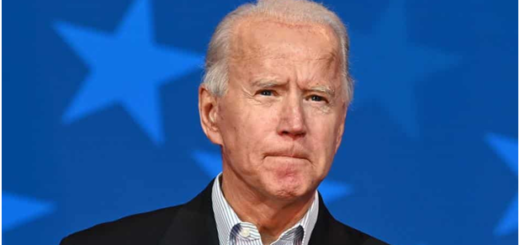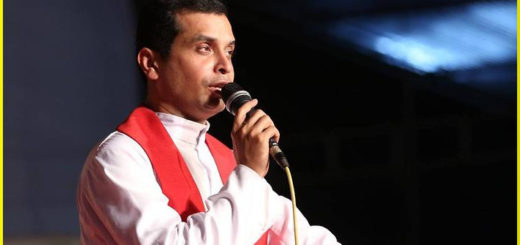The Power of Words
Our Columnist from Chicago
Mathew Idikkula
(Note: Indeed, used and abused is the God given blessing called “speech” as our friend from Chicago writes. Just imitate him and react constructively to the right use of speech he demonstrates in this article.jk, ed)
The faculty of speech is a unique blessing to us humans, and it is also the most abused. We speak more than we should, most of which is empty rhetoric. Ideally, we should see more, hear more, but speak little. It is not without reason that nature has given us pairs of eyes and ears but one tongue.
Though it’s difficult to restrain our tongue, we can learn to control it. “When speech is controlled, the eyes speak; the glance says what words can never say,” says HazratInayat Khan. That is, we should speak only so much that needs to be said and no more. Just as a barking dog is not considered a good dog, a talkative man is not considered a man of thinking. As the Malayalam saying goes, “Silence is the hallmark of a wise man.” Because true eloquence lies not in rhetoric but in fewer words.
The power of speech is the power of its words—the way in which we choose and combine our words. For words have immense power, positive and negative, and they’ve also consequences. Words are like fire in that the impact depends upon the manner in which we use either of them. For instance, fire burns if it is not handled with care, and the same fire cooks for us when it is used with care.
Similarly, if we don’t choose our words with care, they can be more penetrating than a sword. The wound inflicted by a sword might be healed, but the wound caused by harsh words could last a lifetime. Harsh words are like arrows shot at others, and they leave lasting effect.
Likewise, soothing words give us a sense of joy as well as a lasting memory of goodness. Let me drive this point home with an experience I had while I was living in Ambala, India, in the late sixties. In a nutshell, I was getting ready to go to the railway station, which was more than thirty minutes of walk from my quarters, for a seat-cum-berth reservation. It was December, the weather quite chilly. Above all, it was around midnight, the perfect time to make a train reservation those days.
As I was about to leave, Mr. Anthony Gonzalez, my room-mate, got up from his bed and spoke to me in a brotherly affection, “Mathew, it is very cold out there, so take my jacket and also my bicycle.” Apparently, he had noticed that I didn’t have either one of them. Although these kind words fell upon my ears almost forty-six years ago, they still resonate as vividly in my mind now as they did then. And that’s the power of words.
In fact, the power of words is indeed beyond our speculation—and it’s easy to see why. Because words are a form of energy: sound energy. As with any other form of energy, we can’t estimate the power of sound energy either. Upon a closer look, words are made of syllables, and syllables made of air. Henry T. Hamblin says: “Words vibrate according to their character and nature.” That’s why words are capable of creating a range of outcomes, positive or negative. Consequently, words can produce, inspire, inform, reveal, elevate, heal, or unite; they can also destroy, deceive, confuse, radicalize, hurt, or divide.
Interestingly, you can experience the power of words for yourself. Dwell upon a word—either positive or negative, for instance, compassion, love, war, or cancer—for a long period of time, and you will see your mood gradually shifting toward the import of the word. Because a word is a thought, and according to Buddha, “You become what you’ve thought.” This truth also explains the secret behind the power of both praying and chanting holy names.
The mysterious power of words was well known to the sages of ancient India, for the Vedas are replete with numerous mantras—specially coined words under certain spiritual formulas to achieve the maximum power—which play a significant role in almost all religious rituals of the Hindus. However, the most powerful and the most sacred mantra that the human mind has ever conceived is a single word called “Aum,”but which encompasses the entire syllables of speech and beyond.
What’s more, according to the Vedic wisdom, the word or sound is believed to be the first in the creative process of the universe, where the five-fold basic elements such as space, air, fire, water, and earth have proceeded, following the same sequence,from a primordial word.
The whole point of this narrative is to keep ourselves reminded of the fact that words are too powerful to either ignore or abuse in our communication. Regardless, most of us throw words around thoughtlessly, causing considerable damage to ourselves and others. Our discretion is critical before we allow our words to escape. Once spoken, a word cannot be recalled. That’s why Buddha has a profoundly practical advice to all of us: “If you propose to speak, always ask yourself—Is it true, is it necessary, is it kind?”
Had we applied these three tests to ourselves, much of the disputes that vex this world could have been prevented. But we are pulled by our nature. And the truth is that most people in this world are ill-natured, and they’re habituated to use bad language in their day-to-day communication—casual, formal, or businesslike.
Swearing is considered normal these days in many parts of the world, particularly in America. Vulgar language has even invaded today’s broadcast industry, polluting the minds of millions. It is here that Rudyard Kipling makes a pertinent observation: “Words are, of course, the most powerful drug used by mankind.” Obviously, the only remedy seems to be the discipline of our speech.
As I said earlier, speech is a blessing peculiar to mankind, so it deserves to be treated as such—where we consider our speech a discipline rather than a privilege. Right speech—one that’s truthful, agreeable, pleasant, and beneficial to all—has been a concept of considerable emphasis in the Vedic tradition, where the human tongue is considered the seat of Sarasvati, the Goddess of speech. Naturally, one would expect what comes out of the tongue is cleaner than what goes in.
Words are meant for communication—speaking with one another, with our parents, with our teachers, with the public, and, above all, with the Divine. Needless to say, words play a prominent role in transforming our lives day in and day out. We must, therefore, exercise extreme caution to pick the right words for every occasion in order that we neither degrade nor hurt anyone with our words
****************************
















